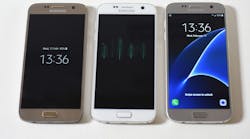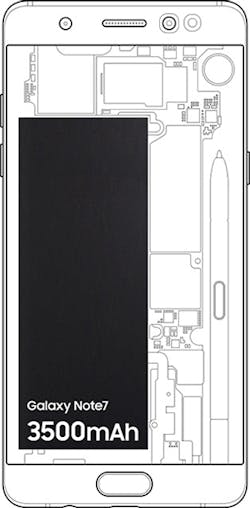First we had hoverboards catching fire; now Samsung is recalling its Galaxy Note 7 phones because they are spontaneously catching fire due to battery-cell malfunction. Samsung, the world’s largest smartphone maker, already advised Note 7 users to power down their devices and contact or visit the retail store where they purchased the device and initiate a product exchange.
The Consumer Product Safety Commission (CPSC) and Samsung are working together to announce an official recall of the device pretty soon. New Note7 phones will be available upon CPSC approval. Meanwhile, the U.S. Federal Aviation Administration (FAA) had advised passengers not to turn on or charge the Note7 phones on board aircraft and not to stow them in any checked baggage. There have been at least 35 reports of the lithium-ion batteries within the devices overheating and bursting, resulting in dangerous fires. The recall will affect all of the 2.5 million Galaxy Note 7 phones sold worldwide.
Lithium-ion batteries are commonly used in electronic devices because they can store more energy in smaller packages and they can be charge faster and last longer compared to other traditional batteries. The majority of the Lithium-ion batteries are safe to use and they operate without incident. But battery packs can go into thermal runaway even if there is failure only in one of the cells, causing a chain reaction where all cells in a pack disintegrate, venting flaming gases.
Thermal runaway can occur when there is an excessive increase in temperature that can be triggered by many scenarios, e.g., internal or external short circuits, physical damage, or an error in the battery manufacturing process. (If you want to learn more about lithium-ion batteries, you can read an article I wrote about hoverboards catching fire a few months ago).
Today, millions of lithium-ion rechargeable batteries are used in many electronic devices including cell phones, tablets, laptops, etc. Apple Inc. also uses lithium-ion batteries in its iPhones and other products. Tesla, the electric car manufacturer, uses lithium-ion batteries in its electric cars. Researchers and developers are still looking for better alternatives to lithium-ion batteries that have high density with the use of no hazardous materials. The race for the perfect commercially viable battery is still on, but who will win? Only time will tell.


